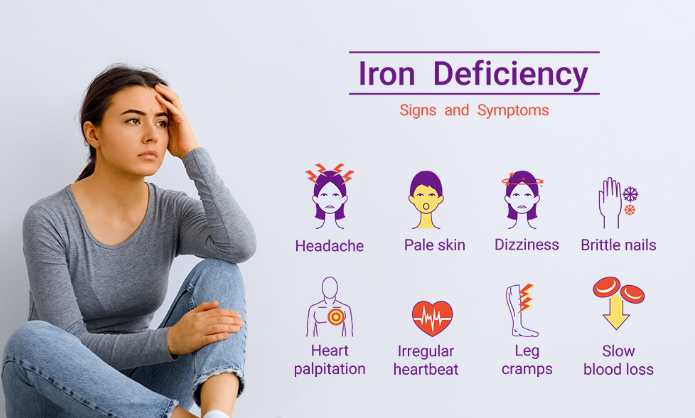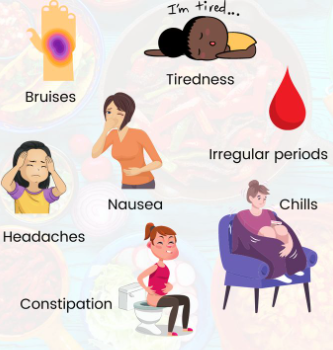
Iron Vitality: Unlocking the Power Within – Understanding the Signs and Symptoms of Iron Deficiency
Iron Deficiency: Unlocking Vitality and Vigor – Recognize the Signs and Symptoms
Iron deficiency, often overlooked, can profoundly impact your body’s functioning, leading to a cascade of symptoms that affect your overall health and vitality. Understanding the signs and symptoms of iron deficiency is crucial for early detection and intervention, enabling you to take proactive steps towards restoring your body’s equilibrium and well-being.

When your body lacks an adequate supply of Fe , it struggles to produce hemoglobin, the protein responsible for transporting oxygen from your lungs to tissues throughout your body. As a result, one of the most common manifestations of iron deficiency is anemia, characterized by a decrease in the number of red blood cells or a low concentration of hemoglobin in the blood. This can lead to a range of symptoms, including:

- Persistent Fatigue: Feeling chronically tired and lacking in energy, even after sufficient rest, is a hallmark symptom of Fe deficiency anemia. This fatigue can significantly impact your ability to perform daily tasks and engage in physical activities.
- Pale Skin and Conjunctiva: Reduced hemoglobin levels can cause pallor, particularly noticeable in the skin and the conjunctiva of the eyes. Pale complexion and pale nail beds are common indicators of poor oxygenation of tissues.
- Shortness of Breath: Inadequate oxygen-carrying capacity of the blood can result in difficulty breathing, especially during exertion or physical activity. You may find yourself feeling breathless or experiencing rapid, shallow breathing.
- Dizziness and Lightheadedness: Decreased oxygen delivery to the brain can lead to feelings of dizziness and lightheadedness, particularly upon standing up quickly or during periods of prolonged standing.
- Cold Hands and Feet: Impaired circulation and reduced blood flow to the extremities can cause your hands and feet to feel unusually cold, even in warm environments.
- Brittle Nails and Hair Loss: Insufficient Fe levels can affect the health of your nails and hair, leading to brittleness, thinning, and increased shedding. You may notice your nails becoming weak and prone to breakage, or your hair losing its luster and volume.
- Cognitive Impairments: Iron deficiency has been linked to cognitive difficulties, including poor concentration, memory problems, and reduced cognitive function. You may find it challenging to focus, retain information, or perform mental tasks effectively.
- Mood Changes: Fe deficiency can impact your mood, leading to symptoms such as irritability, anxiety, and depression. You may experience mood swings or feel persistently low in spirits without an apparent cause.
Recognizing these signs and symptoms is essential for prompt diagnosis and treatment of iron deficiency. If you suspect you may be experiencing Fe deficiency or anemia, it is important to consult a healthcare professional for proper evaluation and management. A simple blood test can assess your iron levels and help determine the most appropriate course of action, which may include dietary changes, iron supplementation, or other interventions tailored to your individual needs.

By addressing Fe deficiency early and effectively, you can restore your body’s Fe stores, alleviate symptoms, and regain your vitality and well-being. With proper care and attention, you can take proactive steps towards optimizing your health and enjoying a fulfilling, energetic life.
It is essential to consult a healthcare professional if you experience any of these symptoms, as they may indicate underlying health issues, including fe deficiency. A simple blood test can confirm iron levels and help guide appropriate treatment.
Treatment for Fe deficiency typically involves dietary modifications to include fe-rich foods such as lean meats, poultry, fish, beans, lentils, fortified cereals, and leafy green vegetables. In some cases, iron supplements may be prescribed to restore iron levels to normal. However, it is important to follow healthcare provider recommendations regarding dosage and duration of supplementation to avoid side effects and complications.
For the latest updates-click here.


